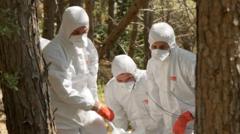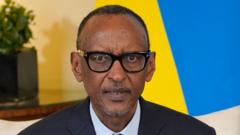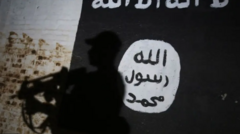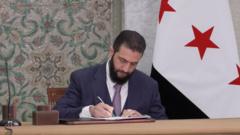Amidst Syria's ongoing struggles for unity after a civil war, a new transitional government has been established, led by interim president Ahmed al-Shara. This government aims to address the fragmented political landscape by incorporating representatives from the country's main ethnic minorities while maintaining key players from the previous administration.
Syria's New Transitional Government: A Step Towards Unity

Syria's New Transitional Government: A Step Towards Unity
A new caretaker government is formed in Syria amid calls for inclusivity and representation of its diverse population.
As the sun rose on Sunday, Syrians began processing the formation of a caretaker government announced late Saturday night, marking a pivotal development in a country still grappling with the aftermath of civil unrest. Acting as the de facto authority since their uprising against President Bashar al-Assad in December, rebel forces led by Ahmed al-Shara now aim to steer Syria into a hopeful new chapter of governance over the next five years.
In a ceremonial swearing-in that extended into the early hours of Sunday, the interim president introduced 23 cabinet ministers, including significant representation from various ethnic minorities such as Kurds, Druze, Christians, and Alawites—the latter being President al-Assad’s own sect. The formation of this government seems to represent a careful balance of power, incorporating both allies of al-Shara and independent technocrats, alongside some ministers who were part of earlier regimes before the civil strife began.
Economic and political experts have noted that this ensemble may potentially bridge some divides within the country. Abdy Yeganeh, from the Independent Diplomat, expressed cautious optimism regarding the government's inclusivity, which is essential in healing the war-torn nation. However, with the recent surge of sectarian tensions, particularly among Alawite communities, the government faces urgent calls to expand its representation further.
Ibrahim al-Assil, a senior fellow at the Middle East Institute, echoed this sentiment, emphasizing the necessity for a more inclusive approach in response to both the complexity of Syrian society and the operational realities of governance in a divided nation. As Syria's new leadership embarks on this challenging journey, their immediate focus will be on fostering unity while navigating a landscape fraught with historical divisions and ongoing sectarian violence.
Muhammad Haj Kadour contributed to the reporting from Damascus, with Carlotta Gall serving as the senior correspondent.



















